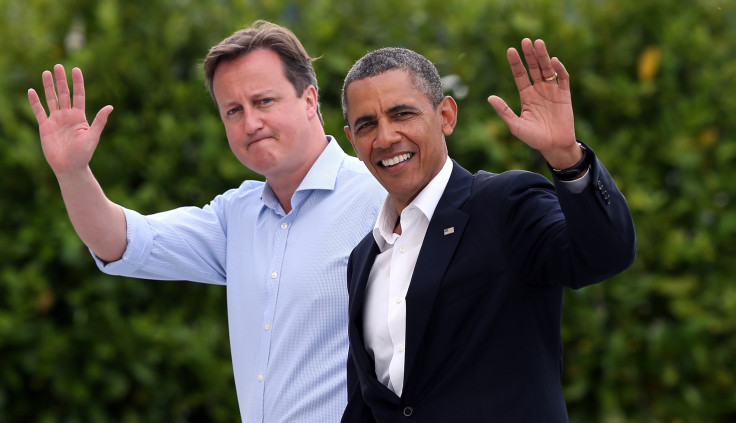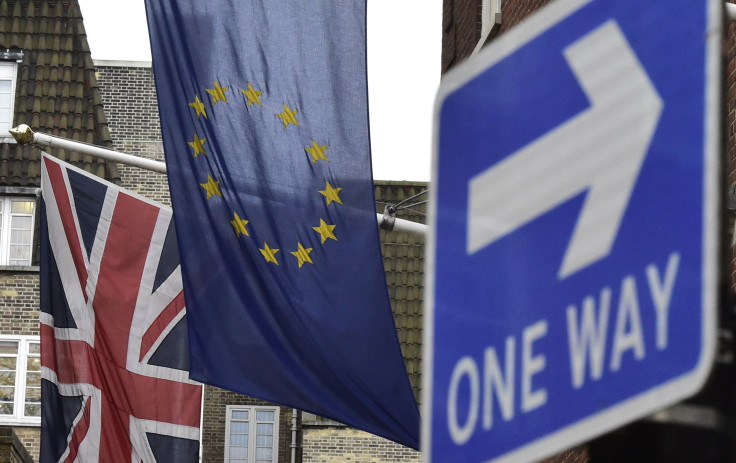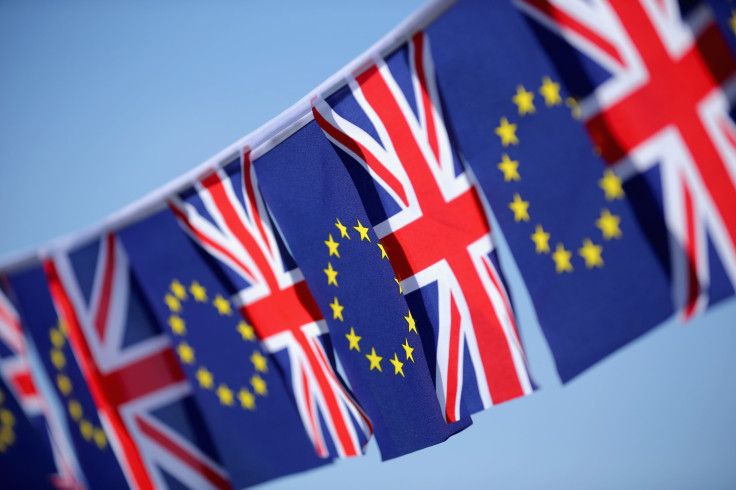UK Brexit Vote Consequences For US: Amid Tied Polls, Obama To Encourage EU Solidarity Ahead Of Referendum

On the occasion of a diplomatic visit to Britain this week, U.S. President Barack Obama is expected to weigh in on the continuing Brexit debate and urge British citizens to consider keeping the country in the European Union when they vote in the June referendum.
While the debate has focused mostly on U.K.-EU repercussions, a Brexit would pose major economic and diplomatic problems for the U.K.-U.S. relationship, including destabilizing trade relations, international cooperation and political closeness, all while potentially driving a wedge between the U.S. and one of its closest allies, economic analysts said.
“This would be a big symbolic blow to the West,” Charles Lichfield, a European analyst for the Eurasia risk consultancy in London, said of a Brexit. “The loss for the U.S. is a partner in the EU.”
The debate over a Brexit centers on several key issues, including the U.K.’s economic viability, its national sovereignty and ability to protect itself from a growing terror threat worldwide. Proponents of leaving the EU have argued that given the U.K.’s status as an international economic hub, it would remain wealthy with or without the single-market trade provided by the EU. As security fears have heightened in the wake of major terror attacks on Paris and Brussels in the past year, Brexit campaigners have said the U.K. could more easily control who comes in or out of the country if it weren’t beholden to the EU.
Pro-European solidarity campaigners argue that part of what has made the U.K. both economically strong and safe from terrorism has been its membership in the EU. The renegotiated terms of U.K. membership brokered by British Prime Minister David Cameron and the European Commission would allow the nation to safeguard its sovereignty while protecting its economic and diplomatic interests abroad, they insist. "Britain is stronger, safer and better off in Europe than we would be out on our own," argues one of the slogans for pro-EU campaign group Britain Stronger In.
The U.S. interest in the U.K. remaining in the EU is twofold: From an economic standpoint, dozens of U.S. multinational corporations have long operated from London as a foothold in the EU, enjoying close proximity to continental Europe while benefiting from financial and legal services in the capital city, as well as the nation’s lower corporate taxes. But perhaps more importantly, the U.K. has for many years served as one of the most pro-U.S. voices in the EU, supporting U.S.-friendly trade policies as well as diplomatic interventions abroad when other EU nations have not.

“The U.S. government’s perception of the U.K. in the EU is that it is a liberal voice that makes the EU slightly less protectionist, slightly more friendly to U.S. interests,” Lichfield explained. The U.K. has historically supported U.S. imports to Europe and favored American interests more than a traditionally protectionist economy like France has, for instance.
While a Brexit might not immediately affect trans-Atlantic relations, long-term concerns would linger over which country or countries would effectively serve as a point person for the U.S. in EU negotiations, according to Lichfield. “Who does the U.S. call first in the EU?” he asked.
The U.K. stands to lose more monetarily than the U.S. in the event of a Brexit, said Swati Dhingra, an economist specializing in trade policy at the London School of Economics. The U.K. would need to renegotiate its trade partnerships with the U.S. outside of the EU and could face similar tariffs to Brazil or China.
“It’s not as though the default is that the U.K. would be a member of certain trade agreements,” said Dhingra, who has studied the economic consequences of a Brexit closely. “That access is going to go away, so that’s going to be a big issue.”
Behind the EU, the U.S. is the U.K.’s biggest export market, selling more than $54 billion in merchandise to the U.S. in 2014. If the U.K. were out of the EU and facing higher import taxes, its exports of cars, fuel and other goods and services may not be as competitive as those from EU member states. The potential instability of Britain without the EU would also make London less attractive for foreign investors, including the U.S. Consequently, the U.K. could lose as much as 22 percent of its foreign direct investment worldwide, according to Dhingra's research.

With a referendum looming June 23, the gap between pro- and anti-EU campaigns has steadily narrowed, with 44 percent in favor of staying in the EU and 42 percent in support of leaving, according to Financial Times' live tracker of Brexit polling information. The vote will be sealed by the remaining 14 percent of voters who are undecided. Other polls, including a recent survey from the Economist, put the two camps even closer, at one point tied in a dead heat with 39 percent support each and 22 percent undecided. Pressure from Obama and other world leaders could help sway the minds of voters, despite criticism from local leadership such as London Mayor Boris Johnson, who has said the U.S. president has no right to advise the British people on this matter.
The Vote Leave campaign has argued that the British economy would remain strong outside of the EU, in part because of its relationship with the U.S. If Obama contradicts that message as predicted, one of the Brexit campaigners’ key arguments could be deflated, one analyst said.
“He will no doubt repeat and elaborate on his view that it’s in the United States' interest to see a strong Britain and a strong Europe,” said Michael Leigh, a senior expert for the German Marshall Fund of the United States, a Washington-based think tank focusing on trans-Atlantic relations.
The U.S. president’s power will remain limited, according to Leigh, who noted the decision on a Brexit will come down to British interests and British domestic debate. “President Obama can have a certain influence in the debate," Leigh added. "I don’t think any outside leader’s voice is going to be decisive, but it can be influential.”
© Copyright IBTimes 2024. All rights reserved.






















